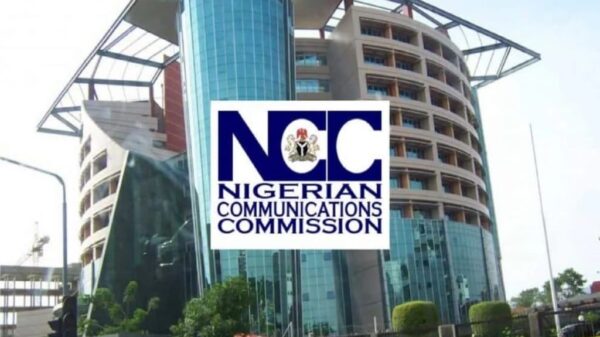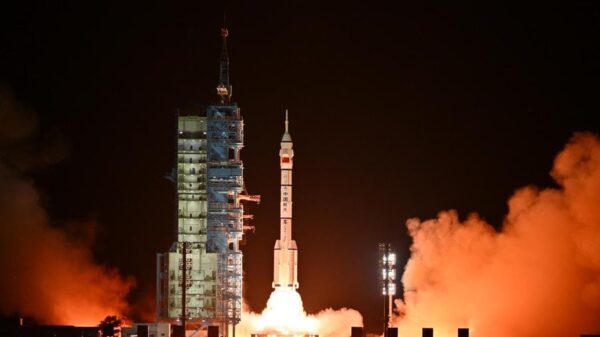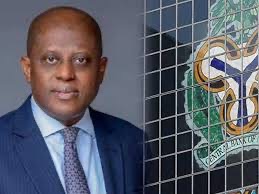The Governor of the Central Bank of Nigeria (CBN), Yemi Cardoso, says the bank’s reforms align with efforts to establish a stronger and more resilient African financial architecture.
Cardoso said this on Saturday in Abuja during his remarks at the 5th African Union Extraordinary Session of the Specialised Technical Committee (STC) on Finance, Monetary Affairs, and Economic Integration.
He listed some of the reforms as the transition to a unified exchange rate framework, removal of fuel subsides, and recapitalisation of deposit money banks.
According to him, in alignment with efforts to build a stronger and more resilient African financial architecture, the CBN had implemented significant reforms aimed at fostering stability, resilience, and growth.
“Notably, the bank had transitioned to a unified exchange rate framework, enhancing transparency and boosting investor confidence in Nigeria’s foreign exchange markets.
“In the financial sector, the ongoing recapitalisation of banks has strengthened the industry’s capacity to withstand economic shocks and support sustainable credit growth.
“Additionally, the removal of fuel subsides has created fiscal space for strategic investments, while targeted policies to enhance diaspora remittances have contributed to an improved external reserve position,” he said.
The CBN governor said that these measures underscored Nigeria’s commitment to building a robust financial system and alligning with regional aspirations.
He said that the extraordinary meeting was convened under the theme, “Building a Stronger and Resilient Africa Financial Architecture”.
He said that the meeting underscored the unwavering commitment to realising the ambitions of the “Abuja Treaty” and the African Union’s “Agenda 2063”.
“Central to these pursuits is the establishment of the African Monetary Institute (AMI), a landmark institution that will serve as the cornerstone of Africa’s financial and economic integration.
“There is also the operationalisation of the African Financing Stability Mechanism (AFSM), which is essential for fostering financial resilience within our continent.
“The establishment of AMI will mark a significant milestone in Africa’s journey toward a common currency., while the AFSM represents a proactive approach to safeguarding financial stability in an increasingly uncertain global economic landscape,” he said.
Also speaking, the Minister of Finance and Coordinating Minister of the Economy, Wale Edun, commended the Africa Union Commission for its exemplary organisation and facilitation of the “all important meeting”.
Edun, who was represented by Aisha Umar, the Director of Special Duties, Federal Ministry of Finance, said that the theme of the ministerial dialogue underscored the importance of Africa working collectively in a more coordinated manner.
He said that such continental cooperation would help in shaping up its economies in a way that African countries would not be dependent on aid from international partners.
“It emphasises that only through collective endeavours can we navigate through the challenging times that face us.
“Already, the painstaking and robust interventions undertaken by our team of experts in fulfilling the mandate we gave to the STC is a clear manifestation of the African spirit of solidarity,” Edun said.
He said that in the past few years, Africa ‘s economy had experienced significant challenges.
He listed such challenges to include poverty and inequality, dependence on aid, global competitiveness, periodic debt crisis, small sizes of its economies, and climate change.
“We can overcome these challenges collectively by building a strong economy and using reforms to strengthen the economic management systems of our continent,” he said.
Dr Hanan Morsy, Deputy Executive Secretary and Chief Economist of the United Nations Economic Commission for Africa, was also present at the meeting.
Others are Prof. Kevin Urama, Chief Economist, African Development Bank; Dr George Elombi, Executive Vice President, African Export-Import Bank, and Amb. Albert Muchanga, Commissioner for Economic Development, African Union.
There was also Mr Neal Rijkenberg, First Vice-Chairperson, of the Bureau of the STC, and Minister of Finance, Kingdom of Eswatini.
























